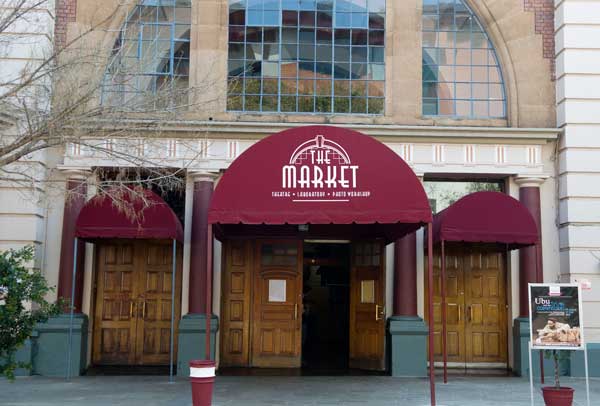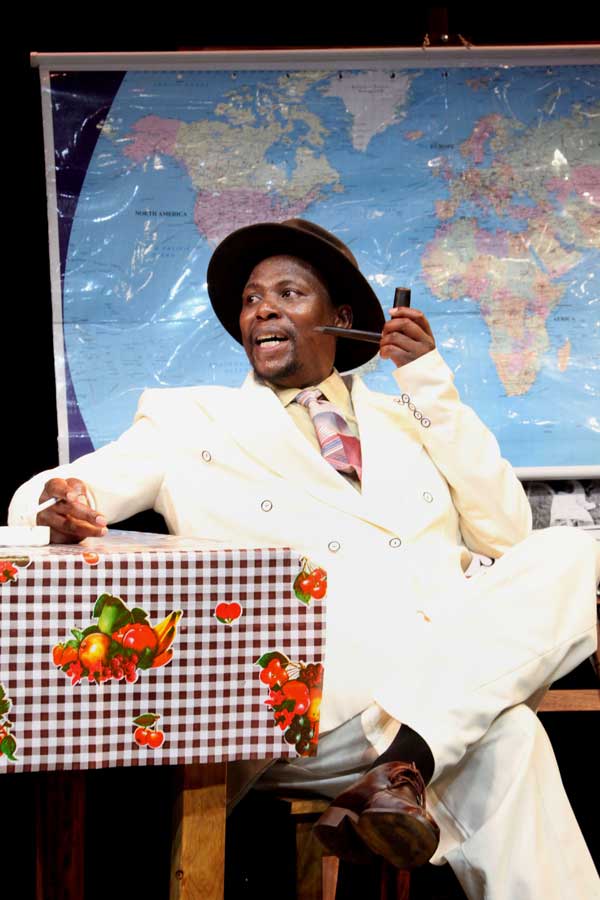Down memory lane of the formation of the Market Theatre
By Ismail Mahomed
Amazing things can happen on a stoep. In a media interview a long time ago one of the co-founders of the Market Theatre, Mannie Mannim, said that the idea for establishing the Market Theatre was born on a stoep in Lenasia when he was having a conversation with community and political activist, Cassim Saloojee.
The one thing I still have to ascertain from Mannie was if Saloogee’s wife served samosas with the tea on the stoep because very few things could inspire greater creativity amongst White folks in their relationships with Indians before 1994 more than a hot spicy samosa tantalizing the taste-buds and the digested spicy samosa later tickling the edges of a pink sphincter. Our grandmothers taught us how to use use the samosa to weave wonderful magic.

When the Market Theatre was founded it was inevitable that Cassim Saloogee would be invited to serve on the theatre’s Board. Saloogee had previously been serving as the Chairman of the Phoenix Players, an early Johannesburg non-racial theatre company that was based at Dorkay House.
Saloogee was a community and political activist. His fate to become a member of the South African parliament in 1994 was inevitable. Growing up as a young boy who did not have shoes when he started his early schooling in Sophiatown, his father inspired him to look beyond his poverty and look up to Yusuf Dadoo, an anti-apartheid activist and Chairman of the Defiance Campaign, as a role model. In later years, Saloogee studied to become a teacher and amongst his lecturers was Robert Sobukwe.
From a life in Sophiatown, Roodepoort and Bloemhof to studying in Mumbai and at Princeton University in the US, he took up a job as Director of the JISWA Centre in Lenasia where he became renowned as one of the suburb’s most celebrated community activists but this wasn’t without its own struggle.
When Saloogee returned from the US he lived in an affordable rented house in a “Whites Only” Johannesburg suburb. While the landlord had no qualms about Saloogee living in the rented house the State was not going to have any of it; and a court battle ensued which later led to the formation of ACTSTOP, an activist group that was going to challenge State evictions.
When Saloogee was the Director of the community-funded JISWA Centre it was here where I first got to meet him. Apart from making the Centre available for a broad range of community programmes Saloogee made the Valiamma Memorial Hall in the Centre available for a range of theatre productions which included some of my own early theatre works.
It was in this same hall where Don Mattera’s poems often resonated so movingly. It was in here where I first heard South African playwright, Maishe Maponya and his Allahpoets. It was here where I was introduced to the work of playwright Muthal Naidoo; and had the opportunity of performing in two of her plays. It was here where Vanessa Cooke brought the Market Theatre Laboratory’s touring production of Romeo & Juliet featuring Motshabi Tylele and if my memory serves me right, the multi-award winning South African actor, Mncedisi Shabangu, when he was still at the cusp of his career. And it was at the JISWA Centre where I saw my first solo play, Gamakhulu Diniso’s powerful Khuyanduga which inspired my own passion for solo theatre. Diniso’s play and Maishe Maponya’s Allahpoets were staged as part of a Pan-African Theatre Festival at the JISWA Centre.

It was here where Vanessa Cooke brought the Market Theatre Laboratory’s touring production of Romeo & Juliet featuring Motshabi Tylele and if my memory serves me right, the multi-award winning South African actor, Mncedisi Shabangu, when he was still at the cusp of his career
Lenasia had no formal theatre venue but the intimacy of the hall at the JISWA Centre made it an ideal venue for theatre performances; and Cassim Saloogee always waived venue hire fees when I wanted to bring theatre to the hall. One of my most memorable presentations that I promoted at the venue was the staging of David Minnaar’s solo performance of Heathcote William’s epic poem, Whale Nation.
Whilst I marveled at David Minnaar’s incredible talent it was my association with Cassim Saloogee that raised my consciousness about Heathcote Williams. Like Saloogee who had played an activist role in ACTSTOP, Heathcote Williams was also a leading activist in the London squatting scene in the 1970s.
Apart from his work in Hollywood and with Marianne Faithful for which he became celebrated internationally in the underground world Heathcote Williams was a hero for spray-painting graffiti on the walls of Buckingham Palace as a protest against capital punishment in the UK as well spraypainting graffiti on the walls of London’s Notting Hill district.
Heathcote Williams was very much like South Africa’s own 1950’s Picasso Club whose members included Babla Saloogee, Ahmed Kathrada, Mosie Moolla, Abdulhay Jassat and Farid Adam who painted political slogans in Johannesburg.
When Heathcote Williams died in 2017 not long after he had written a scathing piece about the appointment of Donald Trump as President of the US the New York Times summed up its obituary with Heathcote William’s own philosophy about poetry. It quoted him, “If poetry isn’t revolutionary, it’s nothing. Poetry is heightened language, and language exists to effect change, not to be a tranquilizer.”
In many ways I think Cassim Saloogee too understood that theatre is a heightened language. It exists to effect change and not to be a tranquilizer; and I can only imagine that in our political times of the seventies it could have been one of the only reasons why Cassim Saloogee would have sat with Mannie Mannim and discussed the birth of the Market Theatre.
In the writing of the history of South African theatre Cassim Saloogee’s role has been whitewashed. It’s time to remember him and to give credit where credit is due. On 1 February 2019 I will mark the 10th anniversary of Cassim Saloogee’s death. I’ll light a candle for him in my office at the Market Theatre; and in the weekend that follows I will invite some friends for a party on my stoep because nothing spurs creativity more than the taste buds being tantalized and the sphincter being tickled by a cup of masala chai and a plate of hot spicy samosas.
And I will serve it on my stoep so that we remind ourselves that this year also marks the 120th anniversary when Jan Smuts passed a law that prevented Blacks, Coloureds and Indians from walking on pavements and on sitting on White people’s stoeps.
Just imagine if Jan Smuts did not do that then we Indians while sitting on the stoep of White folks would have been able to give them great ideas on how to internationalize and market souskleitjies, pannekoek, vetkoek and everything else that the Guptas have not yet given a market value. What a lost opportunity that outrageous legislation was for White folks. Isn’t it?
Ismail Mahomed is the outgoing Chief Executive Officer of the Market Theatre Foundation. He leaves the institution on June 30. This article was first published on Facebook last year, 2019.










